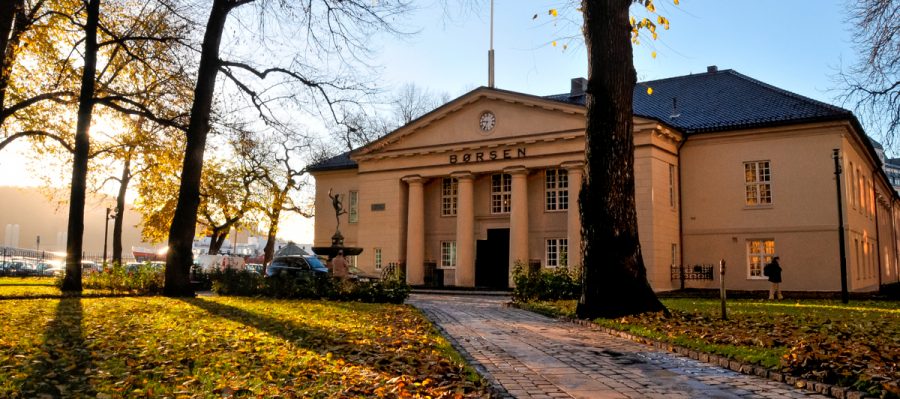Despite a mortality rate not far off Ireland’s (107 v 150 per million), Sweden has come in for a lot of criticism over its response to Covid-19 of leaving responsibility in the hands of civic society, with little acknowledgement of potential health benefits of not imposing one.
Interestingly, nor did neighbouring Norway impose a full lockdown of confining people to their homes, as in most European countries, although schools were closed, along with pubs and restaurants.
The first Norwegian case was discovered on February 26th, with physical distancing measures introduced on March 12th when the first death was recorded. Most of these cases were traced to holiday-makers returning from ski trips in Austria and Italy. On March 16th non-residents were banned from entering Norway. As of April 17th 2020, Norway has performed 13,6236 tests, reported 6937 confirmed cases and 161 deaths (30 per million).
Norwegian-based doctor, and occasional Cassandra Voices contributor, Samuel MacManus provided a Twitter thread on Euresilience which offers an interesting explanation for why the country, which like Sweden has a long tradition of social democratic government, has endured the outbreak without great difficulty.
Thank you @doctorskunk for sharing your stories on @Euresilience yesterday. https://t.co/JldxxCIMLY pic.twitter.com/Q5a6T2Xji9
— Euresilience / Una (@Euresilience) April 16, 2020
First he acknowledged that ‘Norway has had some natural advantages, and some less tangible ones,’ in what is not only a health crisis but a societal challenge: ‘The low density of population in Norway has helped. Viruses love crowded cities.’
About a thousand cases arrived at once from northern Italy, but these were mostly youngish fit skiers, who ‘had the best chance of survival, but more importantly were rapidly identified, contact traced and isolated.’
But there are ‘less identifiable factors at play,’ he said. ‘Margaret Thatcher said there was no such thing as society … In Norway society is everything & everywhere. ‘Dugnad’ in Norwegian means a collective voluntary effort; It’s a word used all the time here. For covid a National dugnad was declared.’
He reveals how: ‘people see the institutions of the state not as some kind of foe, but as an expression of themselves.’
He also alludes to how in ‘the mission statement of the Norwegian education system it states that their aim is to produce not improved individuals, but citizens.
Moreover ,‘The government and health institutions have been transparent and open on the hows and whys of what they were doing.’
Also, importantly, ‘The public received their info through the same, reliable channels. 9 out of 10 Norwegians listen to or watch the national broadcaster #nrk each day.’
The economic measures have been all encompassing he said: ‘A patient told me today that non-national sex workers in Norway had a special government fund so they could be paid while business was bad … THAT is enlightened policy.’
In the town hall in Oslo, in the great hall where the Nobel peace prize is awarded, is a vast mural. pic.twitter.com/a0oaWpOC52
— Euresilience / Una (@Euresilience) April 15, 2020
New Economic Thinking
Elsewhere economic anthropologist Jason Hickel brings attention to 5-point manifesto signed by 170 Dutch academics in response to the crisis that builds on ‘degrowth’ principles, and which has gone viral in the Netherlands. Hickel summarises the points in English.
This is remarkable: 170 Dutch academics put together a 5-point manifesto for economic change after the C19 crisis, building on #degrowth principles. It has gone viral in Dutch media. In this thread I'll summarize the points in English. https://t.co/jjiJ2nVRW5
— Jason Hickel (@jasonhickel) April 17, 2020
1. Shift from an economy focused on aggregate GDP growth to differentiate among sectors that can grow and need investment (critical public sectors, and clean energy, education, health) and sectors that need to radically degrow (oil, gas, mining, advertising, etc).
2. Build an economic framework focused on redistribution, which establishes a universal basic income, a universal social policy system, a strong progressive taxation of income, profits and wealth, reduced working hours and job sharing, and recognizes care work.
3. Transform farming towards regenerative agriculture based on biodiversity conservation, sustainable and mostly local and vegetarian food production, as well as fair agricultural employment conditions and wages.
4. Reduce consumption and travel, with a drastic shift from luxury and wasteful consumption and travel to basic, necessary, sustainable and satisfying consumption and travel.
5 Debt cancellation, especially for workers and small business owners and for countries in the global south (both from richer countries and international financial institutions).
IF YOU HAVE ANY STORIES THAT YOU FEEL NEED TELLING PLEASE LEAVE A COMMENT BELOW OR EMAIL US CONFIDENTIALLY TO [email protected]




